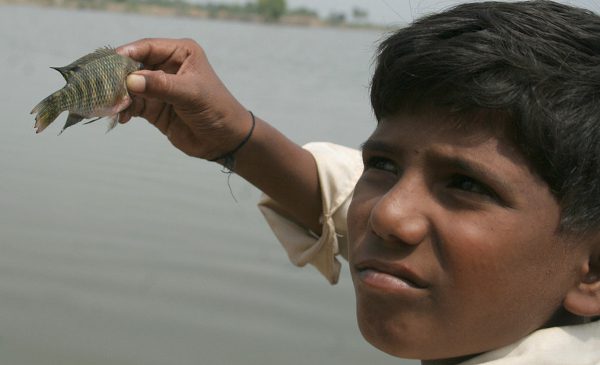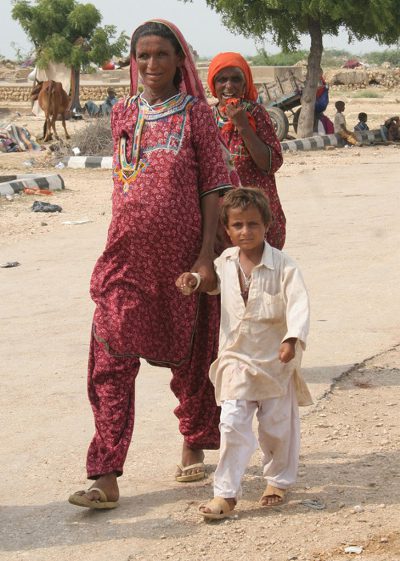
It’s been more than two months since the onset of flooding in Pakistan, and the world is still only beginning to grasp the scale of this disaster. Numbers, maps, comparisons to geographical areas of various familiar places – all of these things have helped us to understand the enormity of the crisis. But sometimes the big picture isn’t enough. Sometimes, when the losses are so great and the need is so urgent, the most powerful picture is a very small one.
Here are two.
Shazed, 8 years old (pictured above)
“When the floods came I was playing with my friends. It started to rain and we thought it would stop. The puddles became rivers very quickly. At first my friends and me were laughing, then we started to cry. The officers came to our houses and told us to leave quickly because more floods were coming. They put us in a truck and took my family and me to a camp. There were other families there all crying and shouting. We had no tent and it was still raining. We had to share a shelter of another family. They had made the shelter themselves. I hated the camp – I wanted to go home. But my father said we couldn’t, our village was gone.
“We’ve been in the camp for 2 weeks now – sometimes we eat, sometimes we don’t. We made our own shelter like other family. My father and I went back to the village – our house was filled with water. We tried to empty it with some old buckets we found, but the water kept coming back in – in the end we gave up and went back to the camp. My father was crying. I was sad. I didn’t want him to cry, so I went back again on my own and tried to empty the house, but there was too much water.
“I don’t like it in the camp, there is nothing to do – at least when we were in our village I could go to school. I miss it. Now I sit by the river all day catching fish. I have made some new friends, but I miss my old friends. I sell the fish that I catch and use the money to buy food for my family. Sometimes I sit here all day and don’t catch anything.
“At the camp it’s hard to get food. The bigger boys take my food from me. I have to run very fast when the aid trucks come to get the food. Then I have to run very fast, far way to eat the food. But the food trucks don’t always come and that’s when I come here to fish.”
Zeenat

Zeenat is a widow. Before the floods came she lived in a mud house with her entire family. Now she lives in a makeshift tent with her son and three daughters. She relies on her eldest son for food.
“They told us the floods were coming and to run or else we would die. We left our homes in the middle of the night – we tried to pack whatever few possessions we had – not that we had much anyway. My eldest son tied it all together – clothes, pans, and food. There was mayhem outside everyone was trying to leave the village. People were shouting, running everywhere.
“We walked for days to reach this camp, our feet were sore, and we had no water or food. I am old and tired I have no more energy left to run and fight. I have to rely on my eldest son to feed me, but how can he when there is no work. We are here and no one has come to help us. Some days we are fed and other days we are just left.
“My eldest son went back to our village to see if we could go home, but he told me there is nothing left – it has all been washed away. He worked on the basis of daily wages in the fields. He picked crops. But fields have been wiped out.
“We live here out in the open. I worry about my daughter’s safety. We haven’t washed for days. How can we wash, my daughters and me when there is no privacy here? My youngest child is ill, she cries all the time. We have all been wearing the same clothes that we left our homes in two weeks ago.
“We don’t know how or when they will eat next. We are lucky if we eat once a day. The children used to look forward to Eid, now they don’t even ask about it. They are too hungry and weak. We are too tired to even swat the flies away now. We will eat the dust on the floor to celebrate Eid.”